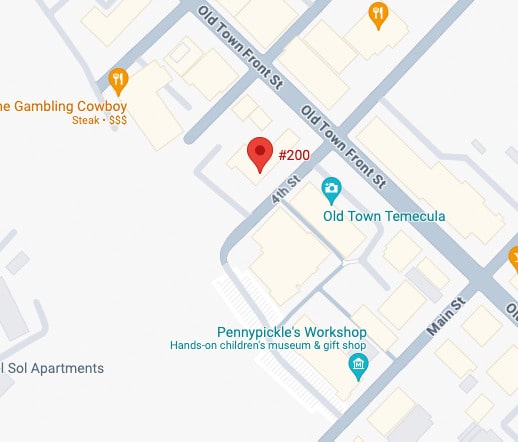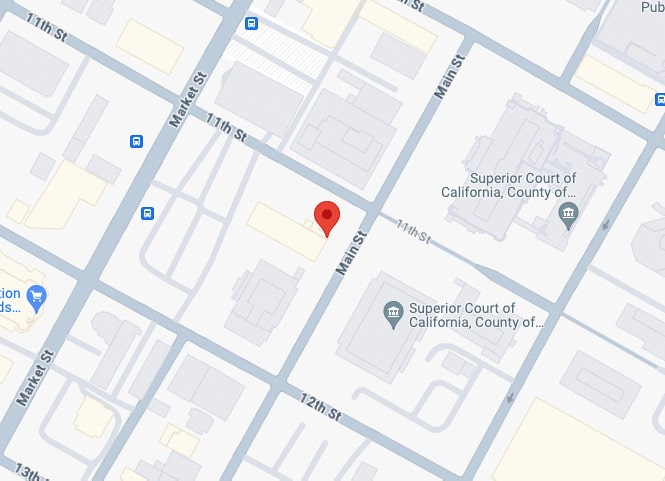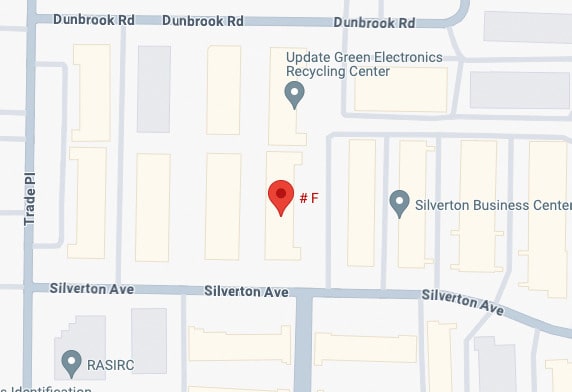The criminal justice process in California is a system of laws and practices that are designed to protect the public from wrongful convictions and punish those who commit crimes. It involves multiple stages in a system that includes the police, prosecutors, courts, and correctional facilities. This system is designed to protect the public and punish those who commit crimes. The criminal justice process also aims to ensure that those who commit crimes are punished, rehabilitated, and prevented from committing more crimes in the future.
Navigating the California justice/criminal court process can be overwhelming and intimidating for many people. With the right information and guidance, the process can be much less daunting. This step-by-step guide to the California justice/criminal court process provides an overview of the different stages of the process, from arrest through sentencing. From understanding the different roles of each party involved to becoming familiar with the various court proceedings, this blog will provide essential information to help you better understand the legal process. With this knowledge, you can be better prepared to make informed decisions and take the necessary steps to protect your rights.
Overview of the California Criminal Justice Process
A wide variety of people come into contact with the criminal justice system each year. In any given state, an estimated 60% to 90% of the population will be involved in the justice system at some point in their lives. People of all ages, races and economic backgrounds are potentially at risk of being involved in the justice system. However, certain individuals are more likely to experience justice system involvement, including people with disabilities, individuals from certain racial and ethnic groups, and people of low socioeconomic status.
The process of justice system involvement can vary widely depending on the alleged crime, jurisdiction, and other factors. It is important to note that this process may vary in different jurisdictions. This guide provides an overview of the justice system process in California.
Different Parties Involved in The Criminal Justice Process
Here are the main parties involved in the criminal justice or court process.
Defendant — The person who is accused of committing the crime. This may be the person who was arrested or the person who has been charged with a crime in court.
Judge — The judge presides over all court proceedings, determines all facts, and issues all decisions and sentences in criminal cases. A judge may preside over a single case, a group of related cases, or an entire court calendar.
Prosecutor — The prosecutor is an attorney who represents the government in criminal cases. The prosecutor’s job is to prove that the accused is guilty of the crime charged. Prosecutors are also responsible for recommending a sentence if the defendant is found guilty.
Defense Attorney — The defense attorney represents the defendant in a criminal case. The defense attorney’s job is to protect the rights of the accused person and make sure the person receives a fair trial.
Witness — A witness is someone who has direct or indirect knowledge about a crime or event. People who are involved in the justice system as a witness may be interviewed by lawyers and/or law enforcement officers and asked to provide a written or recorded statement about what they saw or know.
The Arrest
Criminal charges usually begin with an arrest, which is the moment when a person is first physically taken into custody by law enforcement officers. There are two types of arrests: an arrest for a public offense, and an arrest for a private offense. An arrest for a public offense is done by police officers or law enforcement. This type of arrest is when the officer believes that the person they are arresting has committed a crime and that they should be charged with it. An arrest for a private offense is done by someone who wants to file criminal charges against someone else. In order to do this, the individual must have probable cause that a crime has been committed by the person that they are arresting.
If you are arrested, you have the right to remain silent. You do not have to answer any questions, give any written or oral statements, or sign any documents. It is in your best interest to contact an attorney as soon as possible after your arrest. The arresting officer’s primary goal is to bring the arrested person to court. The officer’s secondary goal is to collect evidence.
Evidence is collected in two main ways: through a search and an interview. The police may search your person, car, home, and/or computer for items that can be used as evidence in your case. The police will likely interview you as soon as possible after your arrest. It is in your best interest to exercise your constitutional rights and remain silent during both the search and the interview.
Arraignment and Pretrial Proceedings
After an arrest, the defendant will be brought before a judge for the arraignment hearing. At this hearing, the judge will review the charges against you, read you your rights, set bail or release conditions if applicable, schedule your next court date, and inform you of your right to obtain counsel.
In most cases, you will be given a date to appear in court and a date to return to the court to meet with your assigned public defense attorney (if you don’t have a defense attorney). After being charged with a crime and before being tried, a person has certain rights provided by the Constitution, including the right to counsel, Sixth Amendment rights, and the right to due process. The government is also required to follow a set of procedures and has certain obligations during this process to make sure that the rights of the accused are protected.
The arraignment stage is where the defendant pleads guilty, not guilty, or no contest. This is also the time when the court documents are filed and entered into the criminal docket. At this stage, you may be issued a criminal citation for your arrest or for an infraction. The clerk will give you a copy of your case number and location in the court system. If you are in jail and have not been released on bail, you will be brought to court for arraignment by a bailiff or deputy sheriff who will escort you down to the courtroom.
You may want to hire an attorney if you have been arrested because it can take weeks before your case is heard in court. In many cases, people who feel they have been wronged by police can file civil rights charges against their arresting officer(s) at this time as well.
The arraignment begins when the prosecutor presents the evidence against you — usually photographs — and asks that you enter a plea of guilty or no contest (not guilty). If there was a search warrant issued, this would be presented as well. The plea allocates blame for the crime to the defendant. If the defendant pleads guilty, he or she can avoid a trial and get a shorter sentence compared to if he or she were convicted after trial. Nonetheless, you should seek legal counsel to know how entering a plea will likely affect your case.
Getting Bail During Arraignment
In most cases, a defendant has the right to request bail during their arraignment. Bail is an amount of money that the defendant must pay in order to be released from custody while they are awaiting trial. The purpose of bail is to ensure that the defendant will return to court for future court appearances.
During the arraignment, the judge will determine the amount of bail based on several factors, including the defendant's criminal history, the severity of the crime they have been charged with, and their ties to the community. The judge may also consider the defendant's financial resources and whether they pose a risk of flight.
If the defendant is unable to pay the full amount of bail, they may be able to use a bail bond company. A bail bond company is a business that will post the bail on the defendant's behalf in exchange for a non-refundable fee. The fee is typically a percentage of the total bail amount, and it is non-refundable even if the defendant is ultimately found not guilty or if the charges against them are dropped.
In some cases, the judge may consider alternative forms of release, such as electronic monitoring or home detention, instead of requiring the defendant to pay bail.
It's important to note that the availability and amount of bail can vary depending on the specific circumstances of the case and the laws of the jurisdiction. It's always a good idea to consult with a lawyer if you have questions about bail in a specific case. You should also get in touch with a bail bonds company as soon as possible to explore the different available options.
The Trial
If your case goes to trial, you will have an opportunity to tell your side of the story and present evidence in your defense. You have the right to have a trial by a jury and, in some cases, the right to select the members of the jury. In California, jurors are selected at random from the general population.
You may choose to have a jury trial if you believe that a judge would be biased or if you think you will fare better with a group of 12 randomly selected individuals than with one individual judge. You have the right to have a lawyer at every stage of the proceedings, including when selecting the jury for your trial.
At the beginning of the jury selection process, both the prosecution and the defense will have an opportunity to “challenge” jurors, or dismiss them from the jury. You may also exercise this right if you believe that a juror would not be a fair and unbiased decision-maker in your case.
After selecting the jurors, these steps follow:
- Opening statements: The prosecutor and the defense attorney make opening statements to the jury to provide an overview of their case.
- Presentation of evidence: The prosecutor presents evidence to support the charges against the defendant, including witness testimony and physical evidence. The defense attorney may also present evidence to support their case.
- Closing arguments: After all of the evidence has been presented, the lawyers make closing arguments to the jury, summarizing their case and trying to convince the jury to find the defendant guilty or not guilty.
- Jury instructions: The judge instructs the jury on the applicable laws and how they should be applied to the case.
- Jury deliberation: The jury retires to a separate room to discuss the case and determine the defendant's guilt or innocence.
Verdict and Sentencing
In a criminal trial, a verdict is a final decision reached by the jury or judge about the guilt or innocence of the defendant. The verdict is based on the evidence presented during the trial and the applicable laws.
In order to reach a verdict, the jury must be convinced beyond a reasonable doubt that the defendant is guilty of the crime they have been charged with. This means that the evidence must be so strong that there is no other reasonable explanation for the defendant's actions other than guilt. If the jury is not convinced beyond a reasonable doubt, they must return a verdict of not guilty.
It's important to note that a verdict is different from a plea. A plea is a statement made by the defendant at the beginning of a criminal trial indicating whether they are guilty or not guilty of the crime they have been charged with. A verdict, on the other hand, is the final decision reached by the jury or judge after considering all of the evidence and arguments presented during the trial.
The judge’s decision will depend on the person’s criminal history, the facts of the case, and the sentencing recommendation from the prosecutor. If you are convicted of a felony, you will have a hearing before a judge who will decide whether or not you will receive probation or time in state prison. If you are convicted of a misdemeanor, the judge will decide whether or not you will receive probation or time in county jail. In most cases, the judge will consider letters, statements, and other information submitted by the parties in making their decision. If you are found guilty of a crime, you have the right to appeal the ruling. You have a right to appeal your conviction if you have proof that the ruling was based on an error of law. If you do not believe you received a fair trial, you do not have the right to appeal. However, you may request a new trial.
The Appeal Stage
In California, the appeal process in criminal cases begins after the defendant has been found guilty at trial and sentenced by the judge. If the defendant wishes to challenge their conviction or sentence, they have the right to file an appeal with the California Court of Appeals.
The appeal process involves several steps. First, the defendant must file a Notice of Appeal with the court that issued the original judgment. The Notice of Appeal must be filed within 60 days of the judgment unless the defendant can show good cause for filing it late.
Next, the defendant's attorney will prepare and file an appellate brief, which is a document that explains the legal basis for the appeal and why the conviction or sentence should be overturned. The brief must be filed within 40 days of the Notice of Appeal.
The prosecution will then have the opportunity to file a responsive brief, which is a document that responds to the arguments made in the defendant's brief.
After both briefs have been filed, the Court of Appeals will review the case and the arguments made by both sides. The court may decide the case based on the briefs alone, or it may schedule oral arguments, where the lawyers for both sides can present their arguments in person to the court.
Once the Court of Appeals has reviewed the case, it will issue a written opinion, either affirming the conviction and sentence, reversing the conviction and sentence, or remanding the case back to the trial court for further proceedings.
If the Court of Appeals affirms the conviction and sentence, the defendant has the right to file a petition for review with the California Supreme Court. The Supreme Court may choose to review the case, or it may deny the petition and let the Court of Appeals' decision stand.
It's important to note that the appeal process in California can be complex and time-consuming. It's always a good idea to consult with a lawyer who has experience with criminal appeals if you are considering appealing a conviction or sentence.
Find a Bail Bonds Company Near Me
The criminal justice system recognizes due process for everyone arrested or charged with a crime. You should ensure your rights are protected at each stage of this process. We at Justice Bail Bonds believe in a fair justice system, and that’s why we help arrestees throughout Temecula get out of jail as soon as possible so that they can lead a normal life while preparing for their trial. You don’t have to stay in custody while you can access our affordable bail bond services, and attend court dates whenever you are required. Please contact us today at 951-445-4155 to discuss how we can help bail you or your loved ones asap!










